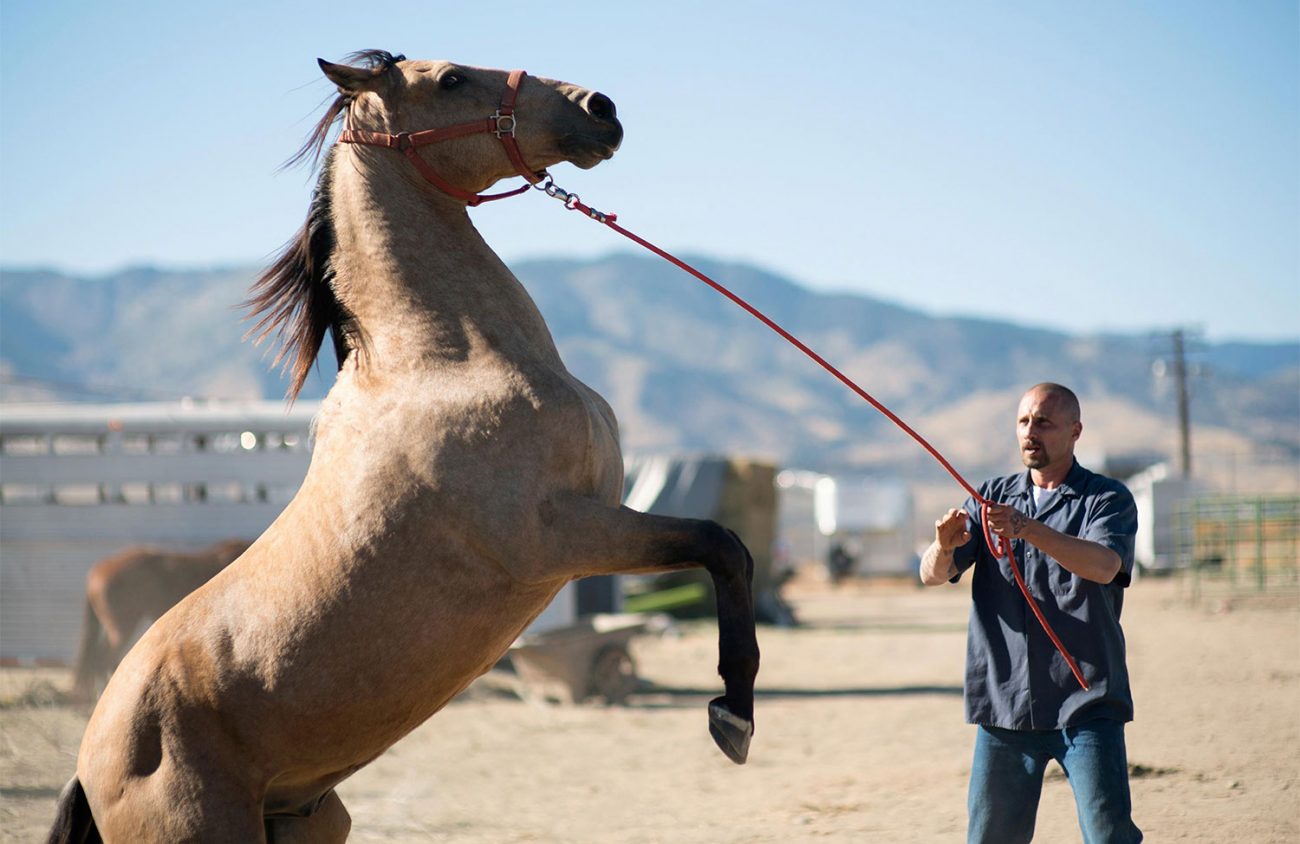It’s the plot of half the horse books I read and loved as a child: A troubled girl who doesn’t fit in comes across a wild/abused/untamable horse and, somehow, a miraculous bond is formed — despite the fact that the girl in question knows nothing about horses.
Soon, horse and girl are galloping across fields and healing together from their physical and emotional wounds.
Take this plot and turn the young girl into a hot, troubled dude, then place that dude in prison, and you have The Mustang, the debut film by director Laure de Clermont-Tonnerre, who also co-wrote the screenplay.
If you are at all an equine expert or if you have any knowledge of the prison system, you are going to roll your eyes a couple times at The Mustang. From this, you might assume I’m not a fan of the movie, which has garnered glowing reviews since Sundance — but I am.
Because, after you’re done rolling your eyes, you’ll return to your willing suspension of disbelief and relish a story that never grows old — a tale of redemption through animals and freedom through wild horses.
Executive produced by Robert Redford, the film brings to mind Redford’s own equine redemption piece, The Horse Whisperer. The Mustang opens dramatically, as a peaceful herd of horses is startled into bolting by a helicopter chasing them into captivity, setting up the prison parallel.
Matthias Schoenaerts stars as Roman Coleman, a man who isn’t just troubled but violent. What led to his imprisonment — 12 years, and much of that in solitary, as the film begins — slowly unfolds through painful conversations on visitation day with his pregnant daughter, Martha (Gideon Adlon), who is angry with her father for reasons that reveal why Roman almost prefers prison, and even solitary, to the outside world.
The film is at once lush and stark. It deals with aggressive and troubling themes but periodically tickles with quirky moments. There’s the awkward photo of Roman and Martha in front of a fake beach scene on visitation day, or the scene where Roman tells a psychologist (Connie Britton) trying to reintegrate him into the prison population out of solitary that “I’m not good with people.”
Roman is somehow placed on shit-picking duty with the prison’s wild horse program, which is based on an actual program at the Northern Nevada Correctional Center. There he sees the mustang he will later call Marquis (but pronounced Marcus) locked in a dark stall, kicking and banging on the walls holding him in.
Later, in his own cell pounding his own walls, Roman comes to understand the animal. The elderly cowboy (Bruce Dern) who heads up the prison horse-training program recruits Roman to train Marquis and change his own life.
The mystical bond between imprisoned horse and man begins.
The film offers moments of almost unrealistic drama, such as the scene in which Roman takes out his scary anger on Marquis, punching the animal, or another in which he is able to bring the wild horse to safety in a storm. But even at its most unrealistic, The Mustang’s narrative draws the viewer back in.
Perhaps the weakest point is a subplot involving drug smuggling, an evil cellmate and a fellow convict who is a talented horse trainer, but this also points to the strength of the film — I wanted to return to the story of Roman and the wild horse who could not be tamed. (Bijou Art Cinemas)
